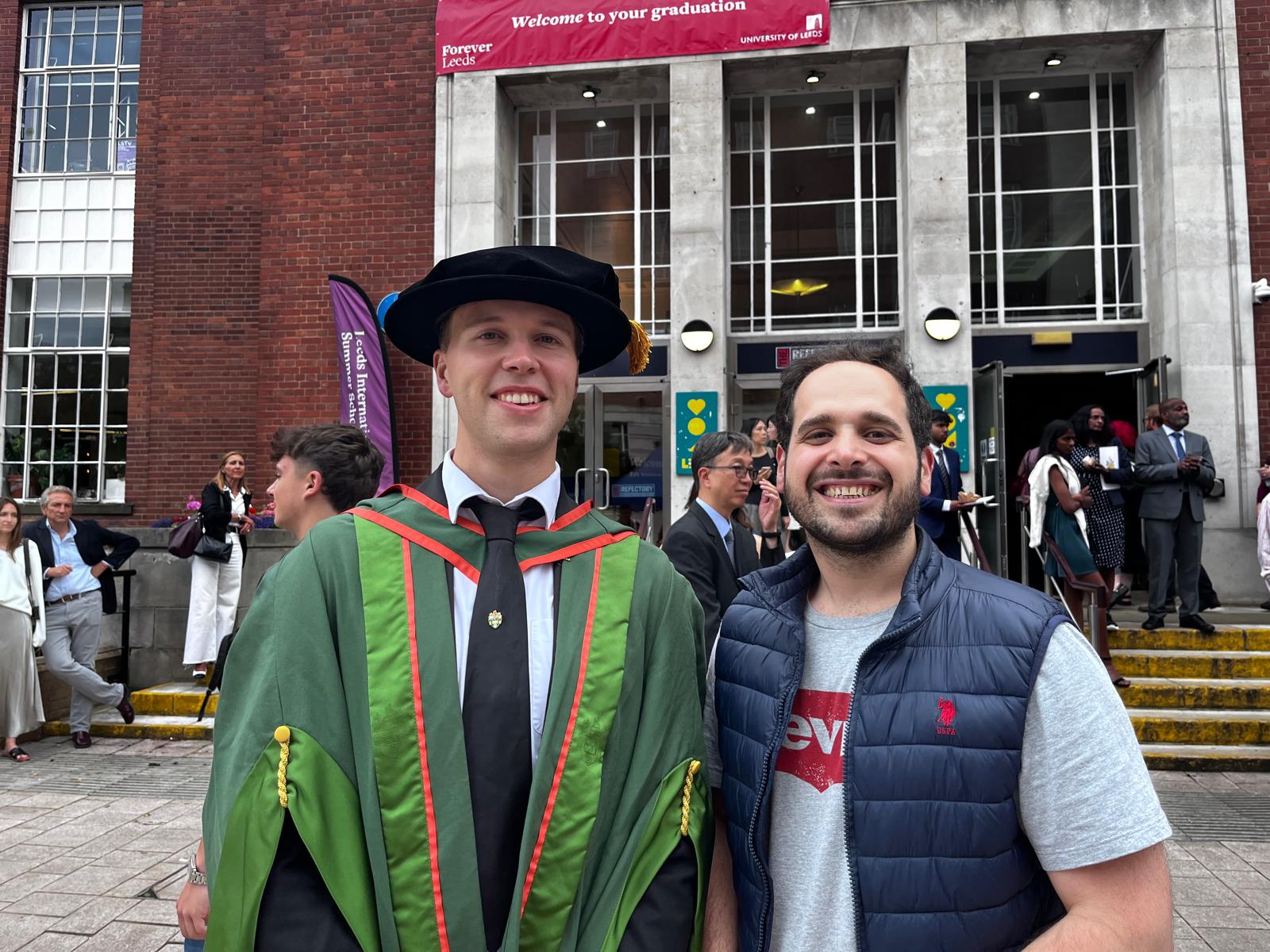Dr. Ben Kew graduates from University of Leeds with his PhD degree

Massive congratulations to Dr. Ben Kew, 8th PhD student from Sarkar Lab graduating from the University of Leeds. Ben has accomplished significant achievements in the alternative protein space during his PhD titled "Oral lubrication of alternative proteins" for which he was also awarded Reserach Excellence. Research excellence principally reflects outstanding achievement in the thesis and oral examination at a level significantly above what would be expected for the award of a doctoral degree (highly original, high level of critical
thought, outstanding presentation of the work), where the candidate has fulfilled all requirements for the degree either without corrections (straight pass) or with minor editorial corrections. Ben's PhD was funded by European Research Council (ERC) with multiple papers published in Nature Communications, Food Hydrocolloids, Trends in Food Science and Technology, Scientific Reports, etc. Ben continues his alternative protein innovation whilst being a Postdoctoral Research Fellow in SusProFood Project funded by Innovate UK since February 2024, where he is working with food companies bringing novel ideas of how to incorporate large proportions of plant proteins into fibre-rich matrices:
Ben's papers from his PhD as well as adjacen work in the Sarkar Lab can be seen here:
- Difference in astringency of the main pea protein fractions.
- (2023).Transforming sustainable plant proteins into high performance lubricating microgels. Nature Communications,
- Scientific Reports,
- 2021. Oral tribology, adsorption and rheology of alternative food proteins (2021). Food Hydrocolloids, 116, Art. No. 106636 https://doi.org/10.1016/j.foodhyd.2021.106636
- (2021). Surface adsorption and lubrication properties of plant and dairy proteins: A comparative study. Food Hydrocolloids, 111, Art. No. 106364 https://doi.org/10.1016/j.foodhyd.2020.106364
- 2020. Review on fat replacement using protein-based microparticulated powders or microgels: a textural perspective. Trends in Food Science and Technology, Volume 106, pp. 457-468 https://doi.org/10.1016/j.tifs.2020.10.032

